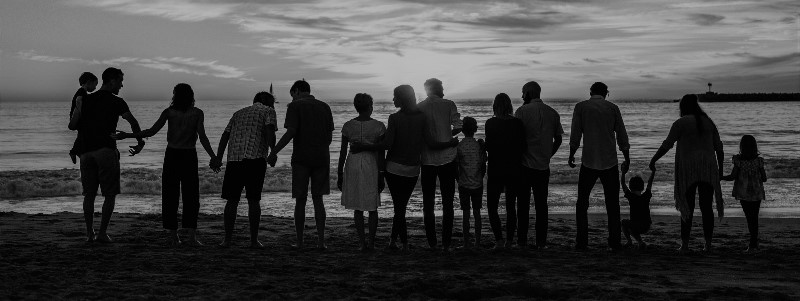The 13th century Persian poet Rumi invites us to wait in the unknown in his well known poem Guest House, to wait and see what transformations might occur.
This being human is a guest house.
Every morning a new arrival.
A joy, a depression, a meanness,
some momentary awareness comes
as an unexpected visitor.
Welcome and entertain them all!
Even if they are a crowd of sorrows,
who violently sweep your house
empty of its furniture.
Still, treat each guest honourably.
He may be clearing you out
for some new delight…….
Rumi (Guest House)
Psychotherapy invites something of the same experience as that which Rumi describes – an opportunity, a space, to sit with and pay attention to news from within. The more we sit with experience the more happens – new feelings , thoughts and perspectives emerge and shift and as time passes our tolerance for experience grows. When we pay attention to (rather than acting on) the many conflicting urges within, sitting becomes a different form of action.
Being right/ Being wise
An attitude of unknowing, whilst challenging when in search of solutions, might also protect us against false omnipotence. In a conflict with a partner it is all too easy to be convinced that you are right and they are wrong – to blame the other and exonerate oneself. The reverse might also occur. Either way aggression can turn against the other and/or the self. Misery and/or righteousness are quick to follow.
Like the universe though, we are mostly unknown to ourselves. Assimilating the fact that we do not know everything about ourselves or the other can help facilitate a condition of greater openness and humility. Becoming more interested in learning who (else) we might be requires a different attitude, an attitude of unknowing, wholly different to that of omniscient (although not entirely conscious) dogma with which we so often proceed. Our investment in being “right” will often do more harm than good. Cultivating a more exploratory appreciation of complexity is not a new concern – Socrates taught that much of what passes for knowledge is opinion. It is one thing to be right, it is another altogether to be wise.
My truth v Your Truth
In couples work in particular it is not unusual to witness people bludgeon each other with their “truth.” Whilst it is not difficult to take sides with truth against lies, realities are often far more complex, and thinking one’s truth is the truth is not truthful. In the context of couples therapy “truths” will often fly across the room like bullets from a gun. Weaponising truth, using it to distance and wound another might feel good in moments of high tension, but using truth to a more compassionate (productive) end means paying attention to how it is delivered.
Growth requires us to allow a space for ignorance in the face of knowledge. This can be difficult …particularly in a long term partnership where so often we are inclined to think that we know our partner better than they know themselves. Knowing ahead of time what is going to happen next is more often a defence against the intensity of experience….. (if we already know it then we don’t have to experience it). In the psychotherapeutic meeting we allow space for and pay attention to psychic realities… conscious and unconscious. It is possible to hold a lived experience and investigate it at the same time. When we experience life in the present we are also less inclined to become stuck in ruminating about the past.
To enquire about psychotherapy sessions with Gerry Gilmartin, please contact her here, or to view our full clinical team, please click here. Gerry Gilmartin is an accredited, registered and experienced psychotherapeutic counsellor. She currently works with individuals (young people/adults) and couples in private practice. Gerry is available at our Brighton and Hove Practice.












 We are evolutionarily wired for
We are evolutionarily wired for  When you begin therapy you enter into a particular (perhaps peculiar) type of relationship, one with well-defined boundaries and ethics. Beyond its method and structure, at the very heart of this relationship lies empathy.
When you begin therapy you enter into a particular (perhaps peculiar) type of relationship, one with well-defined boundaries and ethics. Beyond its method and structure, at the very heart of this relationship lies empathy.